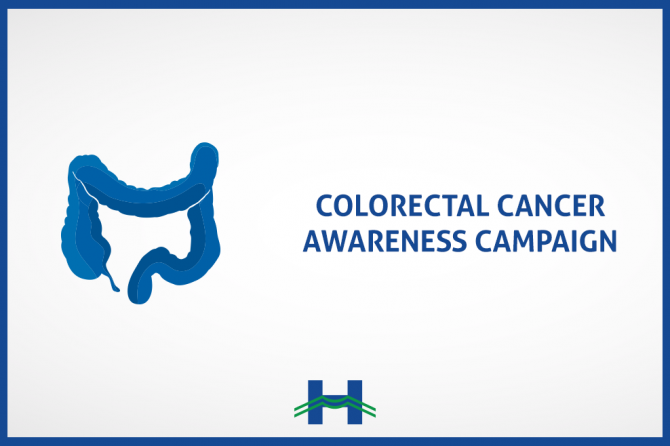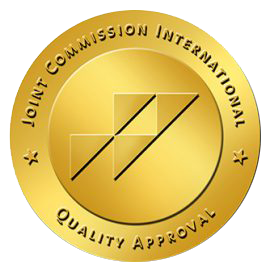
Colorectal Cancer Awareness Article
What is Colorectal Cancer?
Colorectal Cancer is the 2nd most common type of cancer for both men and women and accounts for 10% of cancer cases worldwide. The World Health Organization (WHO) has identified Colorectal Cancer as the 4th leading cause of cancer-related deaths.
What are the risk factors for Colorectal Cancer?
Polyps are lumps on the lining of the colon. They may grow over time to become cancerous cells.
Polyps trigger 95% of colorectal cancers. Other factors include:
- Hereditary Factors:
- Polyposis and Lynch Syndrome, 5-10% of cases.
- Family history of colorectal cancer or colorectal polyps,
- Inflammatory Bowel Disease (IBD) like Ulcerative Colitis and Crohn’s disease,
- Lifestyle Factors:
- Overweight and obesity,
- Excessive consumption of red meat,
- Tobacco and alcohol consumption.
What are the symptoms of Colorectal Cancer?
Indicative symptoms:
- Constipation – related to left colon cancer,
- Prolonged diarrhea – related to right colon cancer (more than 2 months),
Other symptoms:
- Bloating, bowel changes,
- Changes in the consistency of stool,
- Rectal bleeding or blood in the stool,
- Nausea and vomiting,
- Fatigue and anemia,
- Abdominal pain,
What are the stages of Colorectal Cancer?
To understand the development of colorectal cancer, the following classification method illustrates the evolution of the disease.
Dukes’ Classification:
- Dukes’ A: The cancer is in the inner lining of the bowel.
- Dukes’ B: The cancer has grown through the muscle layer of the bowel.
- Dukes’ C: The cancer has spread to at least 1 lymph node close to the bowel and is considered metastatic.
Can Colorectal Cancer Be Prevented?
- Increase physical activity,
- Maintain a healthy diet,
- Limit red meat & processed food consumption and favor fruits & vegetables instead,
- Avoid excess alcohol intake and quit smoking,
- Get screened: Colonoscopy.
What is a Colonoscopy?
A colonoscopy is a procedure performed through the rectum and used to detect changes or abnormalities in the large intestine (colon) and rectum.
When is the best time to undergo a colonoscopy?
Guidelines:
Everyone above the age of 45 should get a colonoscopy:
- If nothing appears, the colonoscopy should be repeated after 5 years,
- If a polyp with a low-grade dysplasia appears, the colonoscopy should be repeated after 3 to 5 years,
- If a polyp with high-grade dysplasia appears, the colonoscopy should be repeated after 6 months to 1 year, it may be removed immediately during the intervention.
Hereditary factors:
- People with an inflammatory disease should get a colonoscopy every 1 to 2 years,
- People with a family history should get a colonoscopy every 5 years.
What happens before, during and after a colonoscopy?
Before the procedure:
The preparation prior to the exam is crucial for a clear and accurate screening.
- 3 days prior to the exam, it is recommended that the patient follows a low-residue diet (low-fiber diet)
- 1 day prior, the patient should avoid solid food and drink clear fluids (soups, liquids….)
- 12 hours prior, the patient is requested to drink laxatives. Contrary to general beliefs only one cup of laxatives and a couple of pills will be needed to help clear the digestive tract for a clear screening (this new medication replaced the 2L amount of medicine that was recommended few years ago).
- 6 hours prior, the patient should be fasting on food and water
During the procedure:
Medications may be administered to promote comfort and keep the patient relaxed during the procedure. A colonoscopy typically takes 15 to 20 minutes to complete. The doctor inserts a long, flexible tube called a colonoscope through the rectum. He will then gently pump air to inflate the colon for a clearer vision. During the procedure, the doctor may remove any abnormal growths or polyps identified.
After the procedure:
The patient may experience gases or bloating due to the injected air. He may also experience dizziness due to the anesthesia, which is why it is advised not to drive post-colonoscopy.
Complications following colonoscopy are very rare: There is 0.001% chance the patient may experience bleeding or perforation and less than 0.001% chance the patient will experience an infection.
Dr. Naji Salem, Gastroenterologist
Dr. Pierre Hani, Gastroenterologist
For more information and to book an appointment call +9615957000-4500
Follow us on:
https://www.facebook.com/mountlebanonhospital
https://www.instagram.com/mountlebanonhospital
Leave a reply







